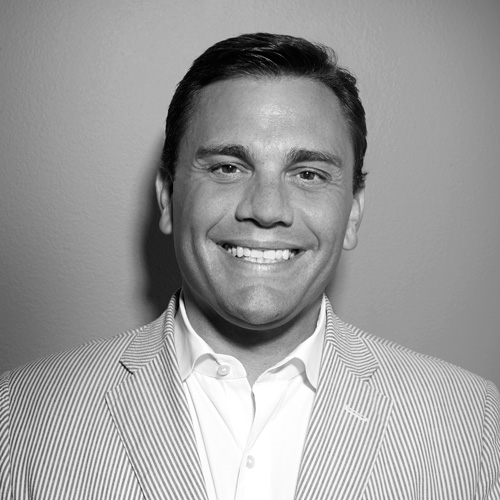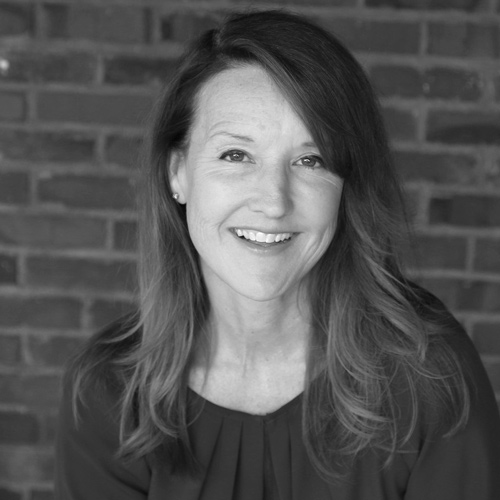After spending nine hours at the office, Karah Parschauer turns the knob of her front door half-expecting to be greeted by her children with hugs and kisses. Instead, she hears her 3-year-old daughter, Grace, singing “Do You Want to Build a Snowman?” at the top of her lungs before seeing that she’s wearing a princess robe, crown, and waving a bedazzled wand. Parschauer kicks off her high heels and follows the sound of her daughter’s voice, joining in on the chorus before looking for Grace’s older-by-three-minutes twin brother, JJ. He’s playing some sort of sword game, yelling “en garde” and “touché.” Out of the corner of her eye, Parschauer sees her husband, John, carrying their youngest, Beatrice, to the kitchen to feed her. Parschauer smiles at the chaos, and walks into the tornado of life.
Parschauer dives into preparing dinner while joining JJ in the next destructive game he’s made up. After prepping dinner, John tells her about the twins’ day at preschool before dealing with a crying Beatrice in the next room.
It’s dinnertime. The kids are seated, waiting for Mom to pour milk, while Dad grabs a wooden spoon to serve a mixed veggie dish. Grace then tries to perform one last Frozen number, but Parschauer says it’s bath time, and the twins run to the bathroom.
The bath is easy territory. It’s the postbath that’s chaotic.
“For some reason, when my kids are naked, they always get really crazy,” says Parschauer. The next few hours are spent trying to put baby Beatrice down. It’s one thing that Parschauer likes to do herself. She sings softly as she gives Beatrice a bottle. It’s the only time she gets with the baby because of her busy work schedule, and Beatrice normally sleeps at about 7:30 p.m.
All About Attitude
Parschauer’s philosophy is “just keep going.” When faced with challenges, she believes in attacking them to get through them. “You need to go through them instead of letting them be roadblocks,” she says. This philosophy was important as she dealt with the changes brought about by Allergan’s integration with Actavis.
“I was the legal lead from the Allergan side for the integration team with my counterpart from the Actavis side. We led the legal department integration. Because our headquarters shifted, we lost our historical executive team, and it’s now replaced with the other executive team. Integration is a lot of change. Historical Allergan had been here and independent for more than 60 years. I’d been here for 10 when the acquisition occurred. I built my career up with these people and this company. To all of a sudden have it acquired by a whole new set of individuals is not just a lot of change for me, but a lot of change for everyone in the company. You have to realize that change is going to happen, and it’s not always a bad thing. The executive team is really sharp and focused. It’s a great time for Allergan.”
After Beatrice is sound asleep, Parschauer rallies her twins to watch Tangled, at Grace’s request. JJ yawns, and rubs his eyes. Parschauer brings them upstairs for bed.
By 9, it’s quiet. The children are asleep, and the parents retreat to their respective corners to shut off and relax.
Her alarm—Grace—pulls at Parschauer’s sleeve to wake her up. She gets out of bed quietly so as not to wake her husband. Then she juggles a mix of e-mails, making breakfast, blow drying her hair, and dressing the kids before hopping into the car for work.
As John starts his day at home with the children, Parschauer takes charge at the office. As the sole breadwinner for her family, she is the associate general counsel for Allergan.
“At the end of the day, I’m still Mommy, and he’s Daddy,” says Parschauer, but it’s not
something that’s clear to the rest of society.
A few weeks ago, she and John met a few friends at a work meeting. One colleague brought her newborn, and John immediately went to the baby to hold her.
“I think there’s still an expectation that the man needs to make the money, that that’s his contribution to the family,” says Parschauer. “All of a sudden, these moms are seeing John under a different set of rules, and it makes for a very interesting or uncomfortable sort of discussion.”
John followed the mom with her baby to the other stay-at-home moms to talk about preschools and the latest water park that will be opening up. Parschauer joined the other working-fathers to talk about the stock market.
After mingling, the two rejoin and one partygoer asks, “Will he go back to being a musician soon?”
Parschauer responds that late-night gigs and their associated lifestyle are really difficult with children, and they decided this was best.
A friend of John’s says, “I’d love to have your job for a day. To just stay at home and play with the kids!”
“Come over for three days,” says John. “We’ll switch, and we’ll see how quickly you want to go back to work after you walk a few days in my shoes.”
These answers come easily to the couple. They’ve had a lot of training coming up with explanations for people who don’t quite understand. “Being the sole breadwinner is difficult, period,” says Parschauer. “That’s not a gender issue. I do believe, as a mother, there are different pressures—internally and externally. Maybe it’s inflicted mommy guilt, but I think there’s a desire and a self-expectation that I will still take care of the twins and Beatrice as much—or more than—my husband will. There’s a pressure for me to get home as soon as I can to spend time with them or take care of them, give them a bath, put them to bed, then I can go work again. I don’t see that pressure as much with the men I work with.”


